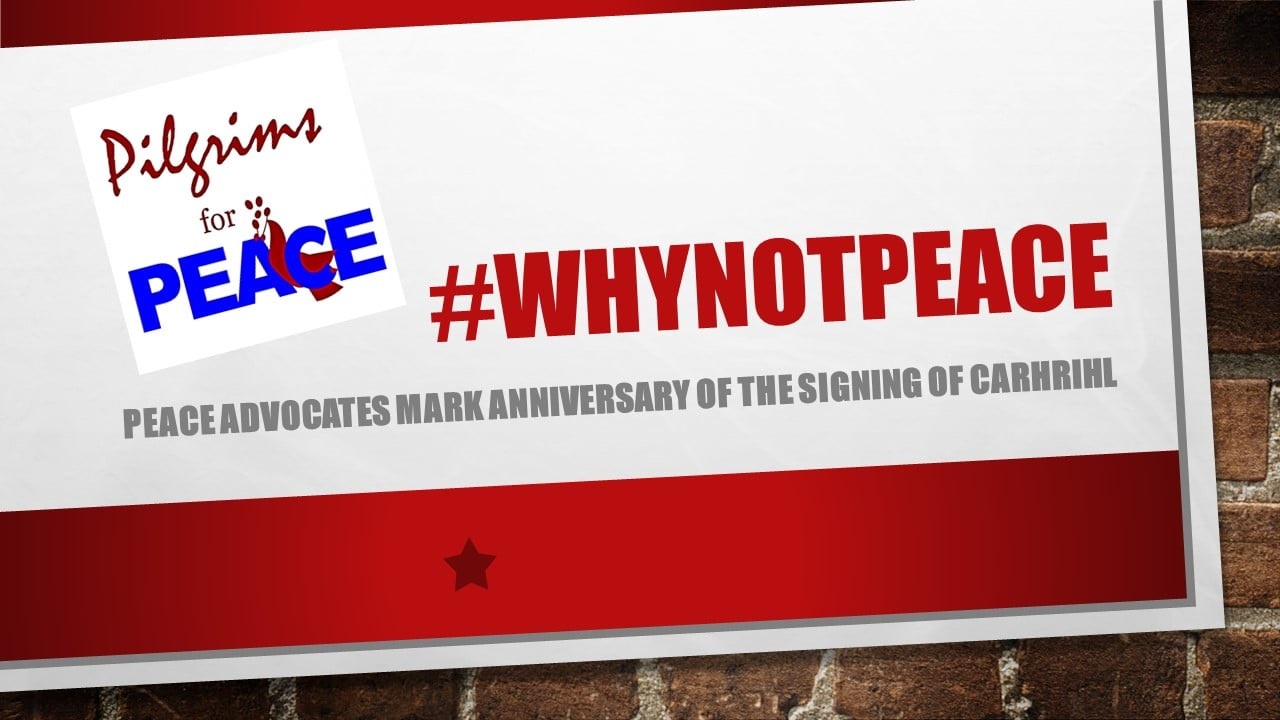Pilgrims for Peace
Press Statement
16 March 2021
One year under the COVID-19 pandemic leaves the Philippines with both a health and human rights crisis. In fact, pandemic quarantines and health protocols have worsened militarization of poor and marginalized communities and emboldened militarists to pursue red-tagging, vilification campaigns and the filing of fabricated charges against farmers, indigenous peoples, trade unionists, social activists, and human rights defenders throughout the country.
With the passing of the Anti-Terrorism Act of 2020 as well as reports of the police asking the courts for the names of lawyers representing clients of so-called “communist-terrorist groups” and the efforts to dig up old case files with the Department of Justice, peace advocates are alarmed. Rather than addressing the roots of the armed conflict through peace negotiations, militarists in the Philippine government are engaging “all-out war” tactics that impinge on civil liberties, fuel state violations of human rights, and result in a more authoritarian rule of the country.
The cruel, dangerous, and even ludicrous red-tagging operations of the National Task Force-End Local Armed Conflict(NTF-ELCAC) unmask that such operations violate civil liberties and often foreshadow extra-judicial killings and illegal arrests on trumped-up charges, as recently happened with the tokhang-styled killings of nine activists in different parts of the Southern Tagalog Region in the early morning of March 7, 2021. “Surrenderee” and ECLIP operations have given rise to corruption, threat/intimidation, and coerced/fabricated testimonies. The Whole of Nation Approach has aimed to put all government offices and local government units at its disposal; retired military generals in civilian posts have commandeered power and the purse. Even the Senate has called for the removal of Lt. General Antonio Parlade, Jr, from the post of NTF-ELCAC spokesperson, noting that an active military officer should not hold a post in a civilian task force.
Still, what will be the end of this militarism? These efforts will enrich the pockets of those in the military, but will fail in resolving the armed conflict, just as “all-out war” operations of past administrations have failed in their intention to annihilate the New People’s Army. Even more, with the widespread violations of human rights and the shrinking democratic space, the ordinary masses more acutely experience the oppression and exploitation that gave rise to the armed conflict in the first place.
Advocates are firm in the call to overcome obstacles to peacebuilding and address the roots of the armed conflict between the GRP and the NDFP. In response to war-mongering, demagoguery (dehumanization/othering), and militarism prevalent in the Duterte administration, peace advocates and civil libertarians ask, WHY NOT PEACE?
We must address the human rights crisis and the health crisis in the Philippines. Working to overcome significant obstacles to peacebuilding, it may be an up-hill climb to the resumption of formal talks between the GRP and NDFP. Still, upholding human rights– as described in the Comprehensive Agreement on Respect for Human Rights and International Humanitarian Law (CARHRIHL) mechanism–will help the two parties to create an atmosphere hospitable for negotiations. The anniversary of the signing of CARHRIHL is an auspicious moment to articulate again that upholding human rights is essential, especially as we press forward in the call to address the roots of the armed conflict to achieve a just and lasting peace for the Filipino people.
#WhyNotPeace? ##
References:
Bishop Reuel Marigza, Pilgrims for Peace
Mike Pante, Act for Peace
Carol Araullo, Kapayapaan Campaign for a Just and Lasting Peace
pilgrims.peace.phils@gmail.com

